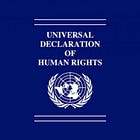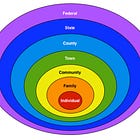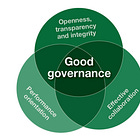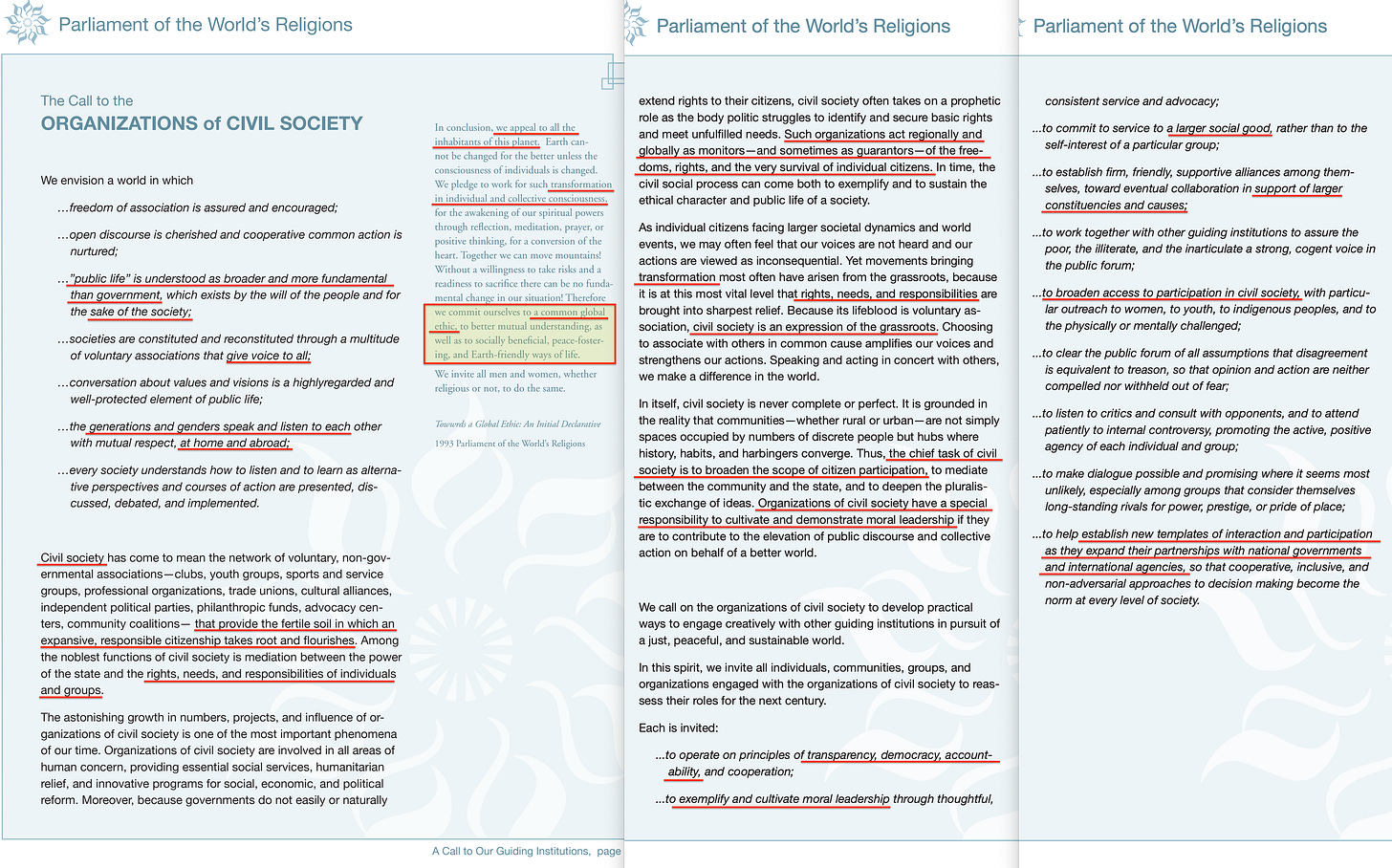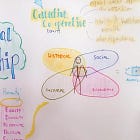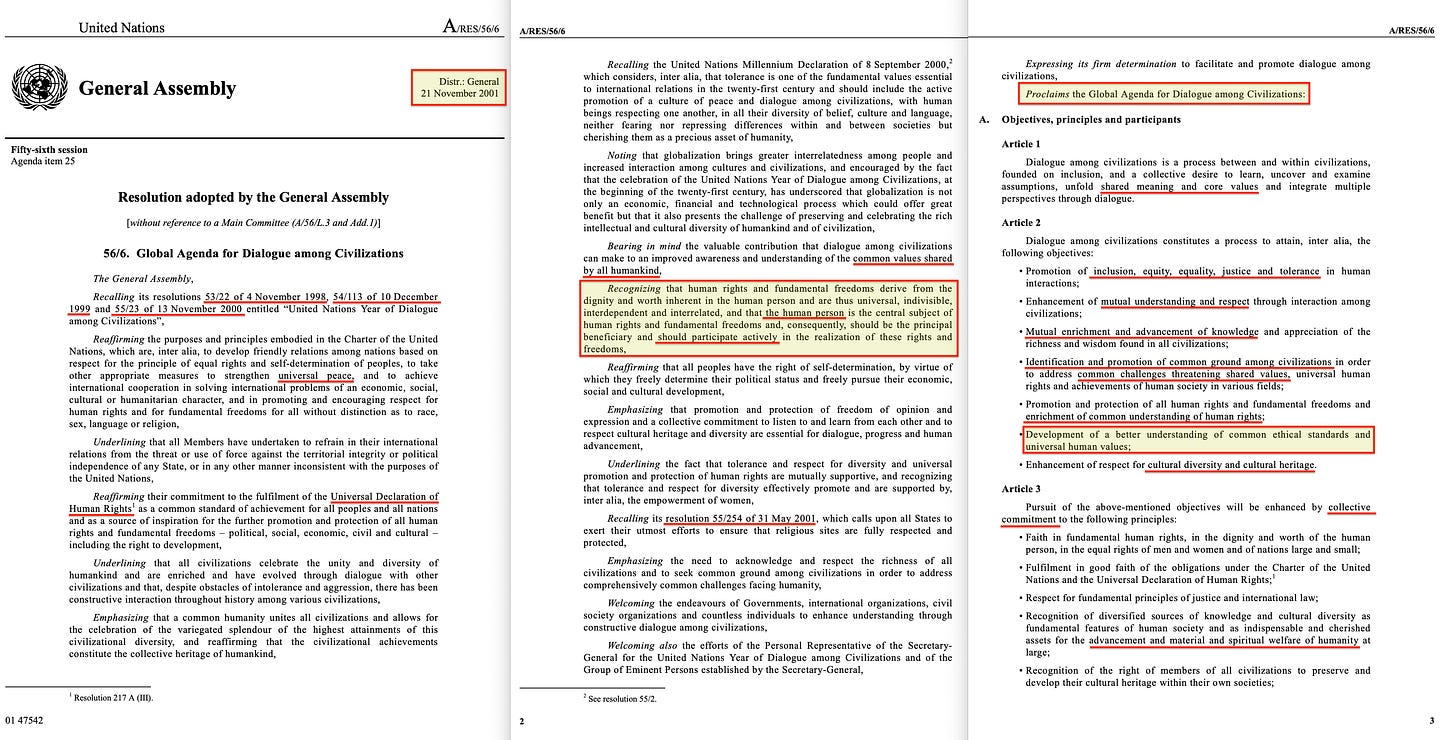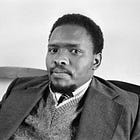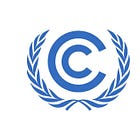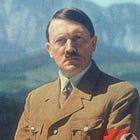Hans Kung was highly industrious. Not only did he author the manifesto, ‘Towards a Global Ethic’ presented at the 1993 Parliament on the World’s Religions, but he further wrote a number of books, reports, and papers on the topic of ‘Global Ethics’.
And he broadened that call at the 1999 Parliament, held in Cape Town.
The most remarkable aspect of this document1 is that it applies to… virtually everyone. There are specific calls here relating to Religion and Spirituality; Government; Agriculture, Labour, Industry and Commerce; Education; the Arts and Communication Media; Science and Medicine; International Intergovernmental Organisations; and even the Organisation of Civil Society.
The documents begins familiar phrasing, emphasising that we ‘live in a global village’, that we are ‘interdependent’ and ‘responsible for care of the Earth’ (ie, planetary stewardship, thus lining up with the Earth Charter released only the following year), that ‘a new level of creative engagement between the institutions of religion and spirituality‘ will lead to ‘the shaping of a better world‘. The early Parliament of the World’s Religions in 1893, chaired by Paul Carus, is noted before Kung’s finest is referred to through -
‘In order to provide a context for these reflections, the 1993 Parliament offered a thoughtful and provocative statement of fundamental ethical principles shared by the world's religious and spiritual traditions.‘
… before this 1999 document issues a call to ‘spread the love’ more widely -
‘On the occasion of the 1999 Parliament of the World's Religions in Cape Town, South Africa, the Council for a Parliament of the World's Religions urges continuing reflection on the commitments at the heart of the Global Ethic and renewed efforts to apply them.‘
The document continues with a rationale that, in addition to calling for us to ‘build a better world’ (build back better, perchance?), emphasises the ‘stronger possibilities for establishing ethical common ground‘, after which the universal directives of ‘thou shalt not… kill, steal, lie, commit sexual immorality’ follows.
Commitments follow, first through ‘As human beings we have a special responsibility - especially with a view to future generations—for carth and the cosmos, for the air, water, and soil‘, which aligns entirely with the concept of planetary stewardship and thus the Earth Charter. It further adds ‘we must cultivate living in harmomy with nature and the cosmos‘, subtly hinting at an ethical level above Earth Charter’s planetary ethic.
The document continues in a somewhat… socialist manner -
‘No one has the right to use her or his possessions without concern for the needs of society and Earth. We must utilize economic and political power for service to humanity instead of misusing it in ruthless battles for domination‘
… before re-emphasising the focus on ‘reflecting on the shared ethical principles expressed in the Global Ethic‘, that ‘the urgent task is to embrace human diversity‘, before continuing in a profoundly more Earth Charter’esque way through ‘continued viability of the Earth‘, before adding -
‘… levels of atmospheric carbon dioxide have risen dramatically; one-half of all land has already been transformed for human use; and one-half of all accessible fresh water has been claimed to meet current human needs. As a result, one of every eight plant varieties and ever greater numbers of animal species are at risk of extinction, a prospect that further imperils the planet and its human community. The challenge is to find sustainable ways to peacefully meet the needs of all people while preserving the integrity of the whole community of life on Earth‘
Solid Earth Charter vibes, right there. And skipping over sections addressing justice, solidarity and service, the document arrives at a call to ‘seek spiritual grounding’, asking us to ‘recognize the interdependence of all life‘, and ‘find compassion that must be expressed in service‘, thus leading to a drive to -
‘… deepen spiritual awareness as the wellspring of personal transformation and to embrace te whole human community‘
And to this end, ‘one must consider the world's most powerful institutions‘.
The preamble states that we as humans are interdependent; as religious and spiritual persons center our lives in an ‘Ultimate Reality’; as members of a world community affirm our four commitments; ‘Commitment to a Culture of Non-Violence and Respect for Life, Solidarity and a Just Economic Order, Tolerance and a Life of Truthfulness, and Equal Rights and Partnership between Men and Women’, and to this extent, the document issues a call, ‘urging each to reassess and redefine its role for a new century toward the realization of a just, peaceful, and sustainable future‘.
The first specific call relates to religion and spirituality, and… it’s boilerplate, where ‘Religion helps human beings find meaning in life and history‘ suggests that religion relates to the time dimension, and ‘ethical questions, religion and spirituality provide necessary and trustworthy values, norms, motivations, and ideals, all grounded in an ultimate reality‘ reaffirms the cosmic ethics we’ll get to… soon enough, especially as ‘Humankind urgently needs social and ecological reforms, but it needs spiritual renewal just as urgently‘, suggestive of… religion being not quite the religion you once knew. And -
‘What claim do the needs of others make on our lives and energies?‘
Adds a positively Emmanuel Levinas’esque dimension to this inquiry. The rest of the chapter is peppered with more Earth Charter’esque reasoning, such as -
‘… unprecedented ecological pressures. It is vital that we develop a global perspective in order to meet adequately our ethical responsibilities as human beings‘
… this focus on our ethical responsibilities, only to finish with -
‘...to promote service… to the entire human family and to the Earth as an affirmation of their teachings on personal spiritual growth, social justice, and life lived in ever-deepening relationship to Ultimate Reality‘
The next call is addressed at government, and it starts with -
‘We envision a world in which universal human rights and responsibilities, grounded in fundamental ethical and moral principles‘
… hammering home much the same. We continue through yet more collectivist trope, with additional emphasis on dignity, the balancing of rights versus responsibility (though framed as individual freedom vs collective action) -
‘Among the noblest functions of government is securing for its citizens their individual and collective well-being. This end can only be achieved through the honoring and safeguarding of human dignity and the constructive mediation between individual freedoms and collective action. When government succeeds in this purpose, it assures the social, political, and ecological integrity of the community‘
… before yet again repeating the call for said ‘shared ethic’ and our ‘common values’ -
‘What is required is that we as citizens live by a shared ethic that clarifies our mutual concerns and common values while transcending narrowly defined boundaries and interests.‘
And as for governance, this relates to the ‘skillful application of ethical mandates and moral convictions to political realities’, as the demand for collectivism shines through repeatedly, asking rhetorical questions such as ‘How can governments move beyond national concerns toward global responsibility?‘ and ‘What is the responsibility of the citizenry in fostering ethical government in a global context?‘, before finally ramming home that the objective here is the ‘cultivation of a high moral will and a truly global perspective‘. And this relates to our universal human rights, be applied at every strata of society, inclusive of local, national, regional, and international levels.
Finally, the call goes somewhat beyond original purpose, requesting -
‘...to broaden the role of the military to include such peacemaking functions as: meeting the challenges of natural disasters, famine, and epidemic; building or repairing vital infrastructure; or conducting ecological surveys;‘
… which, in effect, would act to demilitarise, but further asking for, realistically, more usurious Debt-for-Nature Swaps through ‘remedy the indebtedness of the poorest nations‘, finally - ‘...to move toward a model of "communities of communities," from the village level through the international, with an ethos of service to the common good.‘
And this sounds entirely communitarian, with lots of bonus ‘subsidiarity’ - which of course doesn’t mean what you’re led to believe.
The next call goes to agriculture, labout, industry and commerce, largely the same, but with a few quotes worth commenting on -
‘We call on the institutions of agriculture, labor, industry, and commerce to develop practical ways to engage creatively with other guiding institutions in pursuit of a just, peaceful, and sustainable world.‘
… as this - somewhat - comes across as a stakeholder approach, with this -
‘...to develop and extend common statements of ethical standards… expand long-term goals… opportunity to participate… ‘
… setting the stage for what comes next, through -
‘… to bring their collective experience, knowledge, and skills at persuasion and innovation into partnerships with organizations of civil society‘
Any questions? I thought not. This is about transferring power to CSOs outside of democratic realm.
Education is next, and beyond the call for ‘intergenerational learning‘, and for ‘ethical, moral, and spiritual questions are an integral part of academic and civil discourse‘, which should be ‘taught lifelong‘, it further repeats that ‘every human being… committed service to the entire community of life‘, thus setting the stage for the inclusion of hardcore brainwashing through UNESCO -
‘Young people must learn at home and in school that property, limited though it may be, carries with it an obligation, and that its uses should at the same time serve the common good. Only thus can a just economic order be built up‘
… as they seek to infuse the principles of scientific socialism into every nook imagineable. And the next part appears rich, very rich indeed -
‘They have a right to information and education to be able to make the decisions that will form their lives. Without an ethical formation they will hardly be able to distinguish the important from the unimportant. In the daily flood of information, ethical standards will help them discern when opinions are portrayed as facts‘.
Finally, each is invited to ‘renew their commitment to universal education and to develop and extend common statements of ethical standards and practices that can be accepted, implemented, and monitored around the world‘, which in the context of promoting a global ethic appears rather self-serving, to say the least. Consequently, they may speak of ‘universal literacy as a primary goal‘, but what is meant by this is actually ‘ecological literacy and the study of sustainability‘… ie, planetary ethics and the Earth Charter.
Arts and Communications Media is pressed to to convey the message, as ‘artists, writers, and scientists, to whom we entrust artistic and academic freedom. They are not exempt from general ethical standards and must serve the truth‘, where said ‘truth’ of course is whatever is dictated to them. And the richness continues -
‘The freedom of the arts and of communications media to inform the public and critique society or government is essential to a just social order. This freedom must be exercised with care for the fabric of each society and the whole cloth of humanity.‘
… as that is entirely exploitable, where some events will be hyped up by a colluding media, while others are ignored. Also, no - they never did work out to whom Hunter’s cocaine located in the White House belonged, and that laptop is definitely russian misinformation - and never mind that diary, nor those emails including information considered aboe top secret.
In context of science and medicine, the ‘ethical values’ mysteriously appear centered around the impossible prediction of the future, first through ‘we must alwavs consider the consequences of scientific research‘, before reminding you that ‘scientists, physicians, and engineers bear an unprecedented responsibility for the future‘. And some 20 years down the line, healthcare professionals were fired for ‘ethics violations’ relating to an alleged pandemic.
And this is a topic addressed previously, and it started through ICSU’s SCRES initiative in 1996, and followed by UNESCO’s COMEST in 1997.
International, Intergovernmental Organisations are up next, which kicks off on an entirely friendly note -
‘No new global order without a global ethic!‘
Terms accepted, especially considering this call demands that ‘people from across the planet, from all walks of life, come to see themselves as world citizens‘, before adding -
‘these organizations invoke and act on principles of international law while appealing on ethical and political grounds for a broadly held vision of a better world‘
Setting aside typical Marxist promises of a ‘better world’, I cannot think of something worse but international law being negotiated, influenced or even ‘invoked’ by organisations entirely outside of democratic influence. This should never, ever happen in a million years. It’s fundamentally anti-democratic to the core, and the United Nations should be levelled with the ground for enabling this.
Either way, this relates to ‘the public good‘… or claims thereof anyway, and ‘the equitable sharing of resources‘ in short means you will own nothing, as the ‘stakeholders’ will now consider best use of your resources. And further, we are all invited - ‘to operate with transparency in exchanges with peoples and cultures around the world, and in such a way that the fullest participation of civil society is guaranteed‘
The rest is largely boilerplate, though ‘to help establish more equitable and comprehensive international policies with regard to asylum, sanctuary, and emigration/immigration‘ should bloody well mean they have to pay for their policy outcomes (Soros, I’m looking at you compensating, as you run a ferry service across the Med), and ‘to eliminate the financial, technical, social, legal, and political barriers‘ will naturally be entirely aligned with the interests of those, pushing related legislation. Finally -
‘to assure that resources are available for emergency relief for famine, epidemic, natural disaster, industrial pollution‘
… they even have the gall to request taxpayer funding, to finish on the usual Earth Charter’esque note -
‘to protect the natural resources of the Earth from depredation, pollution, waste, and exhaustion‘.
The final call is issued to Civil Society Organisations, and it requests -
‘In conclusion, we appeal to all the inhabitants of this planet. Earth cannot be changed for the better unless the consciousness of individuals is changed. We pledge to work for such transformation in individual and collective consciousness…‘
… a complete transformation of society, from the individual level to our ‘collective consciousness’. And to this extent… yes, it’s about that Global Ethic, alright -
‘Therefore we commit ourselves to a common global ethic, to better mutual understanding, as well as to socially beneficial, peace-fostering, and Earth-friendly ways of life‘
As for CSO’s in particular -
‘..."public life" is understood as broader and more fundamental than government, which exists by the will of the people and for the sake of the society… voluntary associations that give voice to all‘
… it won’t be about the ‘will of the people’, nor will it about giving a ‘voice to all’, but rather the just a few, large, General Consultative Status ECOSOC-registered NGOs.
‘Civil society has come to mean the network of voluntary, non-governmental associations-clubs, youth groups, sports and service groups, professional organizations, trade unions, cultural alliances, independent political parties, philanthropic funds, advocacy centers, community coalitions - that provide the fertile soil in which an expansive, responsible citizenship takes root and flourishes. Among the noblest functions of civil society is mediation between the power of the state and the rights, needs, and responsibilities of individuals and groups‘
Ie, CSOs mean a whole range of organisations which do not represent the people in democratic capacity, and… these are meant to ‘mediate’ between the state, people, and… well, it might not state so, but it’s clear… business. Because in terms of the trisectoral networks, those CSOs act in a controlling capacity, drumming up awareness, planning, acting as gateway of information, creating the institutions, and organising the public-private-partnerships… which receive all the attention.
The call continues -
‘Such organizations act regionally and globally as monitors - and sometimes as guarantors - of the freedoms, rights, and the very survival of individual citizens.‘
They should absolutely not act as ‘guarantors’ of anything, unless they are willing to accept responsibility should things go wrong - but that of course is the explicit point. They demand influence, but refuse responsibility when things go wrong. Yet, CSOs are some of the strongest proponents of those ‘rights versus responsibilities’. How odd.
‘… the chief task of civil society is to broaden the scope of citizen participation, to mediate between the community and the state, and to deepen the pluralistic exchange of ideas. Organizations of civil society have a special responsibility to cultivate and demonstrate moral leadership…‘
No, it is absolutely not. There’s a reason why we gravitated towards one-man-one-vote.
‘Each is invited ...to operate on principles of transparency, democracy, accountability, and cooperation... to commit to service to a larger social good... to broaden access to participation in civil society... to help establish new templates of interaction and participation as they expand their partnerships with national governments and international agencies‘
And with a focus on accountability, transparency, and participation, this all appears aligned with the principles of ‘Good Governance’. And that, of course, makes complete sense, as ‘Good Governance’ constitute the infusion of ‘Ethical Governance’ into ‘Traditional Governance’.
It’s quite the development from his manifesto from 1993, ‘Towards a Global Ethic’. But Kung further contributed to the InterAction Council’s 1997 ‘Universal Declaration of Human Responsibilities’, also covered by this previous post2.
But… he’s been far more prolific but those two. In 1996, for instance, he penned the paper ‘Towards a planetary code of ethics: ethical foundations of a culture of peace‘3, which begins by detailing ‘missed opportunities’ relating to ‘A NEW WORLD ORDER‘, where the end of WW1, the League of Nations, WW2, the Soviet Union are detailed, before making the fairly blunt statement -
‘NO NEW WORLD ORDER WITHOUT A WORLD ETHIC‘
Terms accepted. However, it carries on, outlining -
‘… a new world order will ultimately be brought in only on the basis of: more common visions, ideals, values, aims and criteria; a strong sense of global responsibility on the part of peoples and their leaders; a new binding and uniting ethic for all humankind‘
To this extent, religions carry a special purpose even if -
‘Although they are extremely different, in many respects they display similar profiles, regularities and effects‘
And this develops into an investigation into ‘moral awareness and of the presence of ethical norms‘, ultimately leading to ‘a minimum consensus on ethics‘, similar in style to Aldous Huxley’s 1947 ‘Perennial Philosophy’4… an early precursor of Hans Kung’s 1993 manifesto. And further down, this is explored through -
‘For all the great religions call for the observance of something like a 'Golden Rule', which is not just a hypothetical and conditional norm but one that is a categorical, apodeictic and unconditional norm, one that is quite prac ticable in highly complex situations where individuals or groups must often act‘
… which to me sounds like a little bit like Aristotle’s Golden Mean5, even if it later states ‘do onto others…’
‘This Golden Rule could be a safeguard against a crude ethics of succes. which is not an ethic at all; it does not need to be understood as a pure dispositional ethic which does not perceive realities, but could become the centre of an ethics of responsibility (the term used by Max Weber and Hans Jonas which always reflects on the consequences of what we do and allow.‘
… and we even have an explicit mention of Hans Jonas. You tend to find Kung mentioning him a lot. Next, a discussion relating to the formation of the awareness required to push through acceptance of this Global Ethic, where said should focus on ‘principles which transcend culture and religion‘.
Kung continues -
‘… it is a matter of becoming aware of what culture and religions already have in common: the formation of an awareness and hence a change of awareness in the sphere of ethics of the kind that has come about in, say, ecology or disarmament‘
… oh, and this is about disarmament, and ecology; in fact, a Planetary Code of Ethics, the title of this article. And should you harbour any doubt -
‘Limitless exploitation of the natural foundations of life, ruthless destruction of the biosphere and militarization of the cosmos are all outrages. As human beings we have a special responsibility - especially with a view to future generations - for Earth and the cosmos, for the air, water and soil‘
Squarely in line with the Earth Charter narrative.
‘Undoubtedly the new world order will only be a better order if, as a result thereof, we have a pluralistic world society characterized by partnership‘
… which should be driven by CSOs, perchance? Unfortunately, an answer goes begging, while the article concludes with -
‘I would therefore like to propose that a body of the United Nations or UNESCO establish a consultative committee to elaborate a first draft of such a planetary code of ethics. The matter is urgent. There is no time to lose.‘
Oh… you mean the Earth Charter?
Kung, as said, was industrious in terms of Global Ethics. Here are his thoughts on ‘Global Politics and Global Ethics’6, a topic incidentally also covered by Tony Blair7. But don’t worry, because part 3 states -
‘… global politics with an ethical orientation does not mean a complete subordination of politics to ethics…‘
… it does not mean a complete subordination (only a partial one), before adding -
‘So a politics based on an ethic of responsibility in the spirit of Max Weber and Hans Jonas means a middle ground between amoral Realpolitik and moralizing Idealpolitik‘
… the call for an ethic of responsibility, and Hans Jonas. The article is from 2002, and it even mentions Tony Blair’s 2000 lecture on Global Politics and Global Ethics, which makes complete sense, given his ‘Third Way’ pamphlet.
And similarly released in 2002, we find his paper on ‘A New Paradigm in International Relations? Reflections on September 11, 2001‘8, from which we establish… well, much the same, but this time dragging in Machiavelli, Henry Kissinger, Bretton Woods, the UDHR, and even ‘Crossing the Divide: Dialogue Among Civilizations’, a discussion convened by the ‘UN Secretary-General Kofi Annan for the UN year of "Dialogue of the Civilizations" 2001'.
And in this context, ‘ethical categories cannot be avoided‘, and these call for ‘reciprocal cooperation, compromise, and integration‘, in fact, ‘what is needed is a new mindset‘
To this end ‘it presupposes a social consensus about particular basic values, basic rights, and basic responsibilities‘, where -
‘… this social consensus, which cannot be imposed by a democratic system but has to be presupposed, does not mean a specific ethical system, but a common basis of values and criteria, rights and responsibilities: a common ethic, an ethic of humankind‘
It’s about a Global Ethic… and a humanitarian one, at that.
‘A global ethic should not be imposed by law but be brought to public awareness. A global ethic is simultaneously oriented toward persons, institutions and results. Therefore a global ethic does not focus exclusively on collective responsibility so as to relieve the individual of responsibility (as if only the “conditions,” “history,” or the “system” were to blame for specific abuses and crimes). Instead, it focuses on the responsibility of each individual in his or her place in society and especially on the individual responsibility of political leaders.‘
… and this global ethic relates to the rights vs responsibilities of all. And with Enron fresh in memory, why not capitalise on it -
‘It could be that the American President, whose budget surplus has decreased in the past year by four trillion dollars and who must reckon with deficits again in the future, will once again reorient his budgetary policy and instead of being primarily concerned with military policy will be concerned with a more successful economic policy, which has in view further Enron-style bankruptcies, Arthur Anderson crimes, stock market disasters, and a recession that is still possible‘
Now, correct me if I’m wrong, but this appears a remarkably biased political statement… by someone who allegedly seeks to unite???
The final pages make a clever progressive build-up via -
‘There will be no peace among the nations without peace among the religions. There will be no peace among the religions without dialogue among the religions. There will be no dialogue among the religions without global ethical standards. There will therefore be no survival of this globe without a global ethic.‘
Yes, this Global Ethic is truly critical. Finally, we find The Honorable Jacques Delors, France; His Royal Highness Prince El Hassan bin Talal, Jordan; Prof. Hans Kung, Switzerland; and Prof Amartya Sen, India all contributed to ‘Crossing the Divide: Dialogue Among Civilizations‘. And that’s of interest as Delors fathered ‘lifelong learning’, bin Talal worked on business ethics (with Edmund de Rothschild) before it was cool, Kung… is the chap we focus on here, and Amartya Sen is yet another Collegium International man of action, incidentally married to Emma Rothschild.
And to - yet again - hammer all this home, from the 2005 document on ‘Global Ethic and Human Responsibilities‘9 by Hans Kung -
‘There can be no new world order without a world ethic, a global ethic.‘
… before adding -
‘And all reasonable persons would probably not object: The law needs a moral foundation! ... In other words: The ethical acceptance of laws (which provide the state with sanctions and can be imposed by force) is the presupposition of any social culture… Quid leges sine moribus? runs a Roman saying: what are laws without morals?‘
Ah, the legal aspect is starting to cuddle up next to ethics and morality, in spite of him reassuring that was not to be the case. What a shocker, eh?
‘I am pleading for the rediscovery and reassessment of ethic in politics and economics. I am all for morality (in the positive sense). But at the same time I am against moralism (morality in the negative sense).‘
His defense here of course will be that the law should dictate the ethic… which is clearly impossible and nonsensical, given he’s advocating a global ethic.
All in all, the call is striking a somewhat more demanding tone -
‘Rights and responsibilities can certainly be distinguished neatly, but they cannot be separated from each other. Their relationship needs to be described in a differentiated way. They are not quantities which are to be added or subtracted externally, but two related dimensions of being human in the individual and the social sphere. No rights without responsibilities!‘
… and this responsibility of course relates to ethics, as he repeatedly added above.
‘The "weakness of human rights" is in fact not grounded in the concept itself but in the lack of any political and moral will on the part of those responsible for implementing them. To put it plainly: an ethical impulse and a motivation to accept responsibilities are needed for an effective realization of human rights.‘
… and this ethical impulse relates to accepting responsibilities, and those should be balanced vs rights, and their weakness is related to political and moral will on the part of those responsible for implementing them… ie -
Ethical impulse becomes responsiblities, these are balanced vs rights, and those should be implemented politically.
Ie, codification into law.
So we have politics, CSOs, religion, education, labour, rights, responsibilities, … oh yeah, and we have the ‘2009 Global Economic Ethic‘10 (reviewed twice already), not least because of Jeffrey D Sachs, though Mary Robinson (Collegium International), Leonardo Boff (Earth Charter), and Prince El Hassan bin Talal (1984-93 Interfaith Declaration) all were first signatories to this; yet another Hans Kung production.
But we above left a cliffhanger. ‘United Nations Year of Dialogue among Civilizations‘, also known as A/RES/55/2311. And this document - which somewhat resembles an ode to civil society organisations - in turn refer to the Millennium Declaration.
The Millennium Declaration (A/RES/55/2)12 is somewhat more muted in terms of CSOs. But it does however include mention of our ‘collective responsibility’, ‘respect for nature‘, ‘shared responsibilities‘, and in item 23 explicitly states -
‘We resolve therefore to adopt in all our environmental actions a new ethic of conservation and stewardship and, as first steps, we resolve:‘
… followed by mention of the Kyoto Protocol, the Convention on Biological Diversity, water management strategies, and to ‘intensify our collective efforts for the management, conservation and sustainable development of all types of forests’ - and all of this in context of ‘Protecting our common environment‘.
All squarely in line with the narrative.
But the ‘United Nations Year of Dialogue among Civilizations‘13 began earlier, and to that extent, A/RES/54/113 from 2000 speaks of… yet more civil society organisation inclusion, ‘improved awareness and understanding of the common values shared by all humankind’, and ‘the diverse civilizational achievements of mankind, crystallizing cultural pluralism and creative human diversity‘ which somewhat appears a nod in the direction of ‘Our Creative Diversity’ from 1995, which included the term ‘Global Ethics’.. 71 times.
And the follow-up report ‘Global Agenda for Dialogue among Civilizations‘14 (A/RES/56/6), this speaks of ‘participation’, ‘common values shared by all humankind’, and requests the ‘development of a better understanding of common ethical standards and universal human values’, a ‘collective commitment’ relating to ‘common challenges threatening shared values‘, and further ‘respect for cultural diversity’.
Article 3 adds a request for ‘participation’ across all strata of society, Article 4… conclusively drives it home, through the ‘elaboration of common ethical standards‘, while Article 5 continues by requesting the ‘participation’ of NGOs and CSOs, before Article 8 reminds media that they, too, have a role to play.
And all this drumming up of a need for a Global Ethic paid off in 2005, as item 161 in the ‘2005 World Summit Outcome‘ (A/RES/60/1)15 document went on to detail -
‘a) Recognize the ongoing reform measures carried out by the SecretaryGeneral to strengthen accountability and oversight, improve management A/RES/60/1 34 performance and transparency and reinforce ethical conduct, and invite him to report to the General Assembly on the progress made in their implementation;‘
Ethics was finally on the agenda, and the call went as far as to request -
‘d) Welcome the Secretary-General’s efforts to ensure ethical conduct, more extensive financial disclosure for United Nations officials and enhanced protection for those who reveal wrongdoing within the Organization. We urge the SecretaryGeneral to scrupulously apply the existing standards of conduct and develop a system-wide code of ethics for all United Nations personnel. In this regard, we request the Secretary-General to submit details on an ethics office with independent status, which he intends to create, to the General Assembly at its sixtieth session;‘
A systems-wide code of ethics for UN personnal, and an ethics office with independent status.
In 2010, the report ‘What is sustainable development‘16 was released, which sheds a bit more light on these developments.
‘The Millennium Declaration was adopted by the UN General Assembly, but the origins of the declaration’s set of fundamental values are unclear. In contrast, the origins of the Earth Charter Initiative—which defines the Earth Charter as a “declaration of fundamental principles for building a just, sustainable, and peaceful global society in the 21st century”26—is well documented. The initiative answers the call of the World Commission on Environment and Development for creation of “a universal declaration” that would “consolidate and extend relevant legal principles,” create “new norms . . . needed to maintain livelihoods and life on our shared planet,” and “ guide state behavior in the transition to sustainable development‘
The Earth Charter, it short, leads straight back to the 1987 Brundtland report.
‘The values of the Earth Charter are derived from… the global ethics movement‘
… aaaaaaaaand cut.
Hans Kung wrote the 1993 manifesto calling for a Global Ethic. Then he escalated that call in 1996, requested not only a Planetary Ethic, but further hinting that a Cosmic Ethic reigned supreme in the universe. In 1997 he contributed to the InterAction Council’s Universal Declaration of Human Responsibilities before he in 1999 issued a simultaneous call to every major organisation in society, including Civil Society Organisations. And though he didn’t participate in the 2000 Earth Charter he might as well have, as his calls for a global ethic through the early 2000s eventually led to the creation of a UN Ethics Office in 2005, in charge of the ethics code which applies to all UN employees.
The Office of Internal Oversight Services is tasked with investigations, relating to the ethics codes, as set out by the UN Ethics Office. And while OIOS does not impose disciplinary measures itself, it refers its findings to the UN Administrative Tribunal or relevant administrative bodies. Disciplinary actions (e.g., dismissal, suspension, or reprimand) are taken by the UN Secretariat or other designated administrative entities based on OIOS findings.
in other words, the UN might have compartmentalised the affair but for all intents and purposes, all employees of the United Nations are expected to abide an ethics declaration or the enforcement mechanism ensure they’re out of a job real soon.
Governance through Ethics.
Except this is global, and consequently -
Global Governance through Global Ethics.
And as the ethics are enforced, these become directive, thus becoming -
Global Governance through Directive, Global Ethics.
And down the line, when all have replaced their mobile phones with BCIs, operating through guidelines dictated through UNESCO’s Neuroethics initiative17, directing people to… commit crimes against humanity under the guise of an alleged pandemic, the true horror will be clear for all to see.
But by then, it will be far too late.
Healthcare staff was fired for ‘ethics violations’ during the recent, alleged pandemic. That is an absolute fact. As is the Supreme Court, looking at ‘grassroots organisations’, aggressively pushing for ethics codes18. Of course, these completely fake pressure ‘Civil Society’ Organisations are actually the ones which clearly have lost all sense of moral compass. Each and every single one should see their business accounts seized, and investigated if for no other reason but to establish to which extent the foundations of Ford, Rockefeller, Carnegie and Rothschild are involved.
Keir Starmer met his new, now independent ethics advisor on his first day in office19, who amazingly hasn’t found a reason to pursue the… complete and utter lack of morality on display, courtesy of the Fabian Society who - if we’re honest - are actually in charge of the United Kingdom at present. And that’s not a bug but a feature, because it ensures that even if Keir is removed from power, the next Fabian will carry on the agenda, armed with… fresh rhetoric, drummed up by the ‘think tank’. The policies, however… they won’t change an inch.
And the Fabian Society itself - whose founding mission statement states ‘The society's aim was "to help on the reconstruction of society in accordance with the highest moral possibilities"‘20 - at every turn ensures that their most controversial material is removed the instant the ‘think tank’ advice has come to pass. Exactly how grossly immoral that is… well, frankly, considering the epic misallocation of resources and gross abuse of power relating to the current investigation relating to a Telegraph journalist... that should tell the full story21.
Who approved that investigation, and why?
Of all, the Fabian Society needs to be thorough investigated. They have pushed policy most certainly since 1997, but realistically far longer with complete and utter impunity. And this represents a dynamic which needs to come to a complete halt.
NO POWER WITHOUT RESPONSIBILITY. And ‘Civil Society Organisations’ in political capacity belong in the trash bin, along with Blair’s ‘Third Way’, the Clinton/Gore administration, the United Nations wholesale… and blatant central bank ‘crisis economics’ intervention. Incidentally, who has been the primarily beneficiaries of the induction mechanism, so intentionally erroneously described through Silent Weapons for Quiet Wars? The same people who pushed the World Conservation Bank so hard, at the 4th World Wilderness Congress?
And this bank rose through the Global Environment Facility, thus facilitating the UNFCCC/CBD mechanism, intended to choke all life out of the west. Their Grand Plan, so to speak.
And as I have repeatedly detailed - and which can clearly be observed through healthcare staff, fired for alleged ethics violations during the pandemic - the principal mechanism works as such -
First, you create an ethics code or declaration. Then you create an enforcement mechanism, ensuring people will abide.
And finally, you merge ethics with law.









